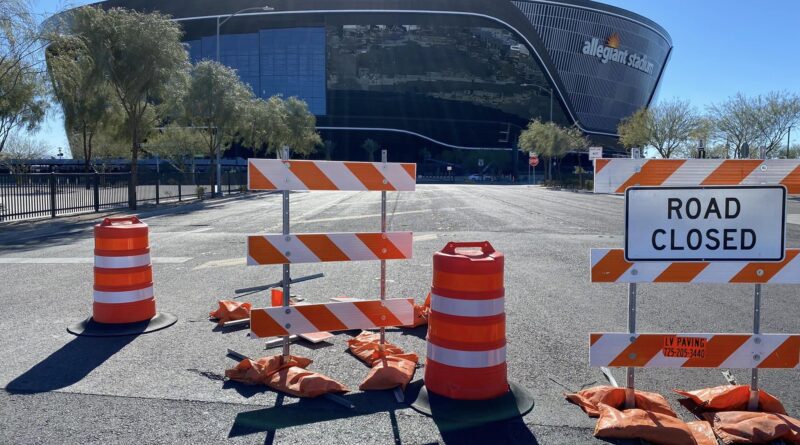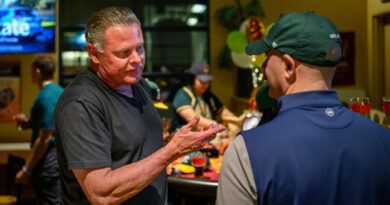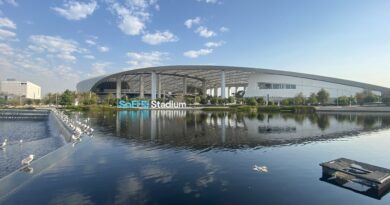America’s Sports Holy Land: Steep Price Las Vegas Pays For Trinity of Super Bowl, Athletics Stadium, Formula 1
By Alan Snel, LVSportsBiz.com Publisher-Writer
Story synopsis: In a place where schools, public transportation, health care rank low in the U.S., Las Vegas leaders find political will and public dollars to support major sports events and stadiums. But is the public price too steep? LVSportsBiz.com explores.
*
It was an odd sight along the Strip late Thursday afternoon, but one that was not necessarily unfamiliar.
There were people walking on Las Vegas Boulevard’s busy road in front of the Bellagio’s famed fountains because the public sidewalk was closed. In fact, the southbound right lane was closed, too, as the couple walked as close as they could along a metal fence with the fountains and Bellagio looming off to their right.
Las Vegas, not too good in the public space dept. The Strip runs on its own rules – those put forth by the hotels and rubber stamped by your local county government. pic.twitter.com/y5K1jRszGl
— LVSportsBiz.com (@LVSportsBiz) January 12, 2024
Just a month after work crews dismantled F1 race grandstands in front of the Bellagio’s popular fountains and restored a public sidewalk back to the Clark County public, the public space was off-limits again. When Liberty Media’s Formula 1 was transforming the Strip’s public right-of-way into a private race course, it was common to see tourists hoof it along the famed boulevard to circumvent closed sidewalks and access areas.
That’s the price of admission to playing in the Big Leagues for Las Vegas.
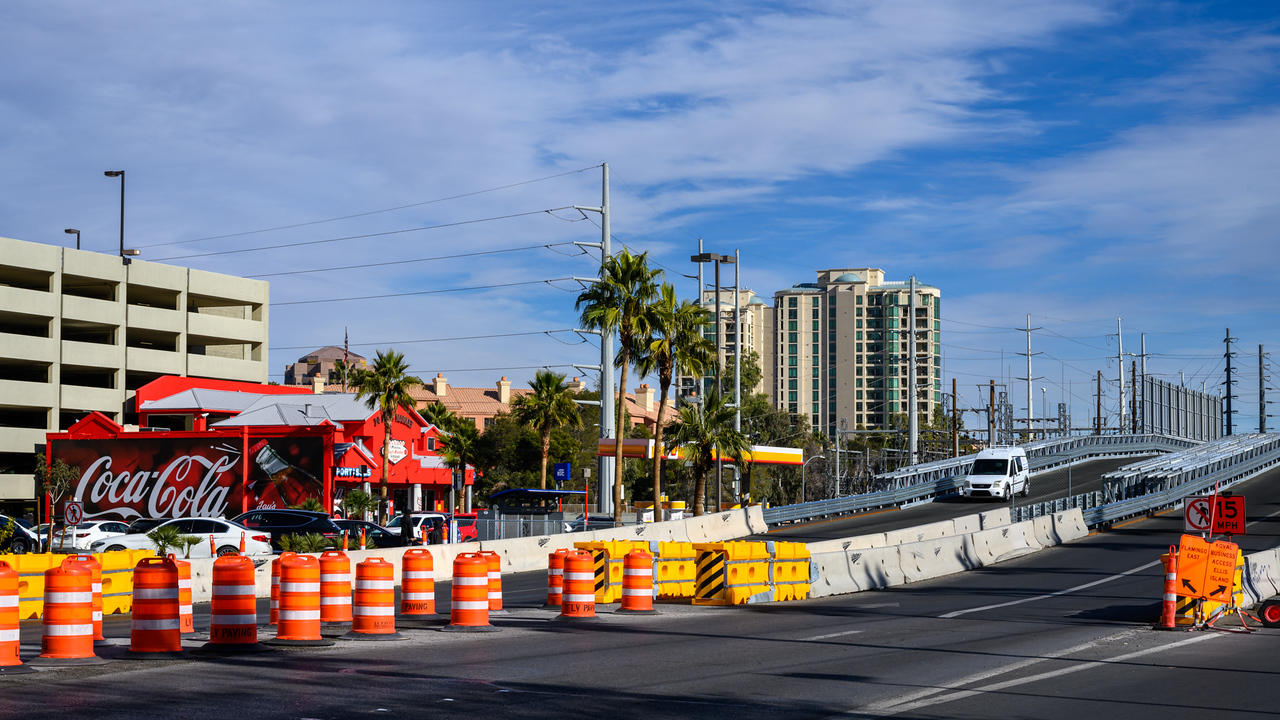
While Las Vegas is the dateline, it’s actually Clark County and the LVCVA tourism agency that are local governments handing out the goodies to Formula 1 and the NFL to stage these Hollywood-style spectacles back-to-back outside the city limits. The LVCVA approved $40 million to spend on hosting Super Bowl 58, while its Las Vegas Super Bowl Host Committee arm is charged with raising another $20 million to support the event. For F1, Clark County handed over 3.8 miles of roads to the race promoter without collecting a nickel in compensation.
With the inaugural F1 in the books, the monster sports tidal wave of Super Bowl 58 is heading to crash into Las Vegas with its army of humanity descending on Allegiant Stadium and the Strip for the big game Feb. 11.
Crews were already busy at erecting broadcast staging equipment at the Bellagio’s iconic fountains, which were visual stars of the NFL Draft event here in Las Vegas in 2022.
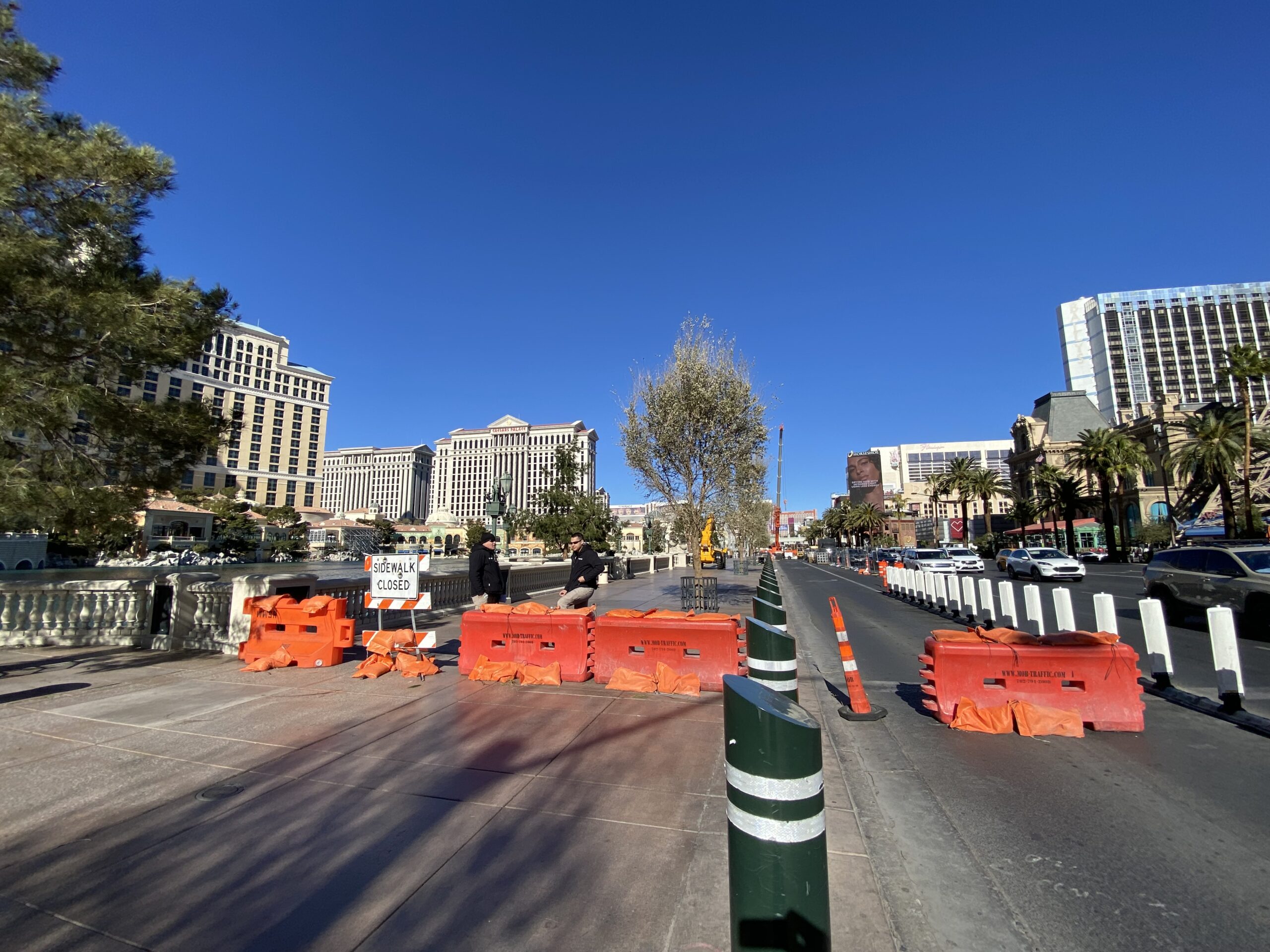
True, two very different beasts, Formula 1 and the Super Bowl. But the NFL already started bonding with Las Vegas through events like tree plantings, while F1 fattened its bank accounts here at the Las Vegas Grand Prix Nov. 18 by charging the highest ticket prices on their global circuit while ignoring locals.
There’s also one more member of the Las Vegas’ sports trifecta besides F1 and the Super Bowl — the Athletics and their planned stadium at the Tropicana Hotel site, less than a mere mile and a half from Allegiant Stadium.
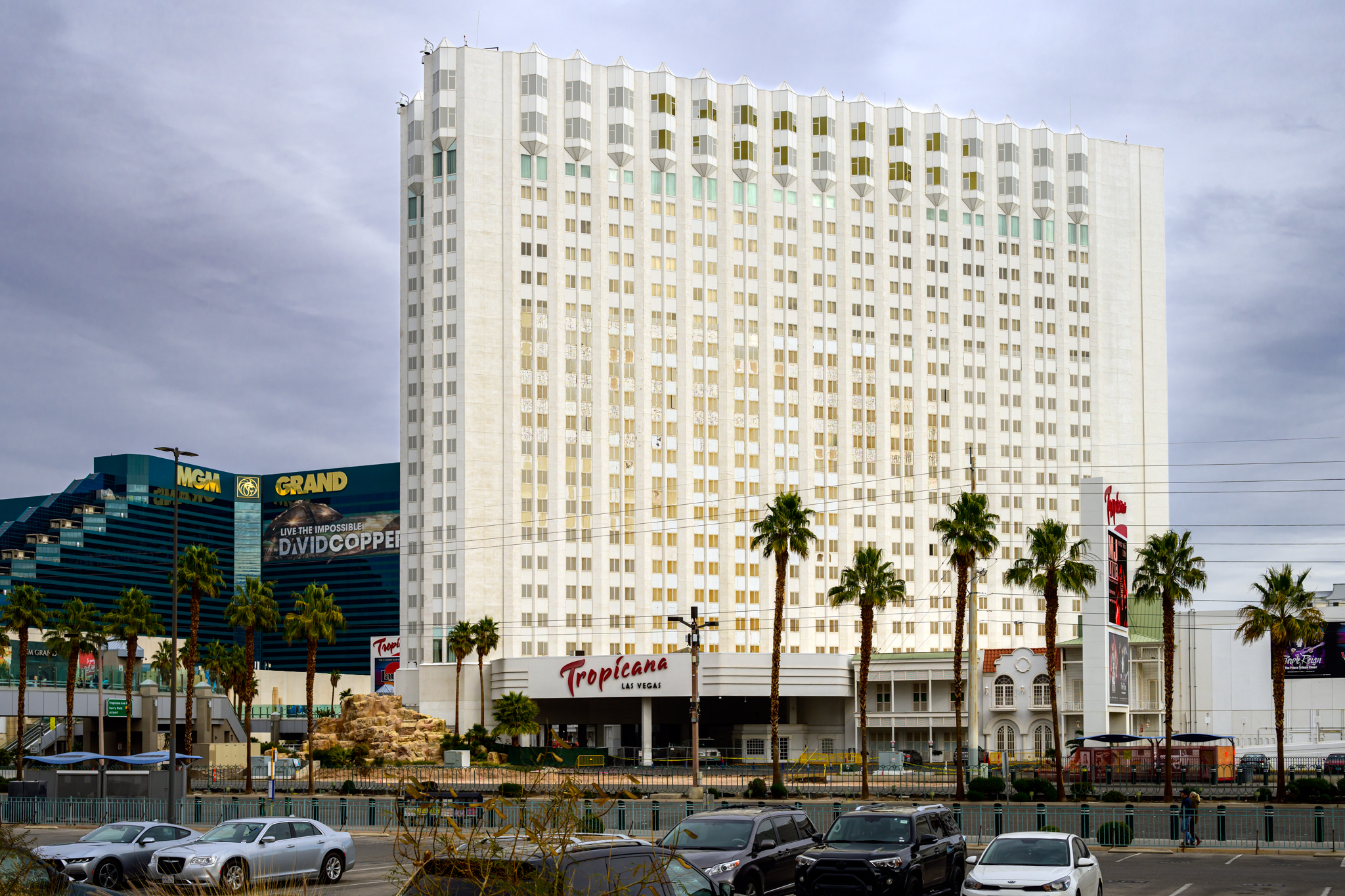
After winning a $380 million subsidy from the state legislature in June, the A’s scheduled a rendering unveiling event for early December to show stadium drawings of the stadium to the public only to scrub the event because the team didn’t feel showing the renderings was appropriate after two Nevada state troopers were killed when they stopped to deal with a driver on Interstate 15 in Las Vegas.
The A’s are not shutting out the public on their stadium plan and move, though. The Major league Baseball team is using the friendly confines of the Vegas Chamber’s annual preview program Jan. 24 for — in the chamber’s words — “addressing the community for first time.”
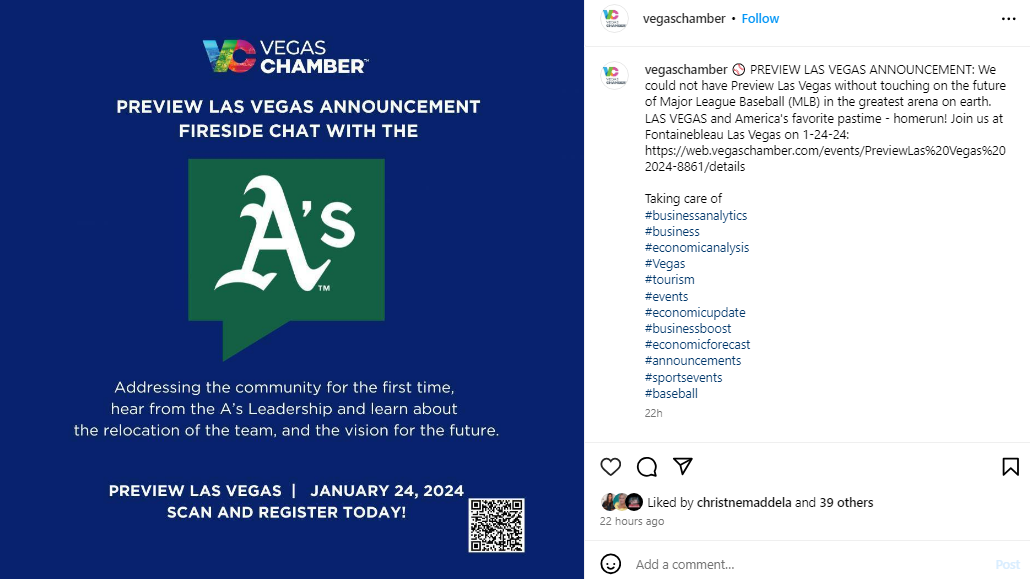
The public can attend the Chamber event to see the A’s representatives at what the local business boosters described as a “fireside chat” — but only if they pay the right price.
One Las Vegas baseball stadium observer posted the costs to attend the preview — prices that might mirror those of attending an Athletics baseball game on the Strip come 2028.
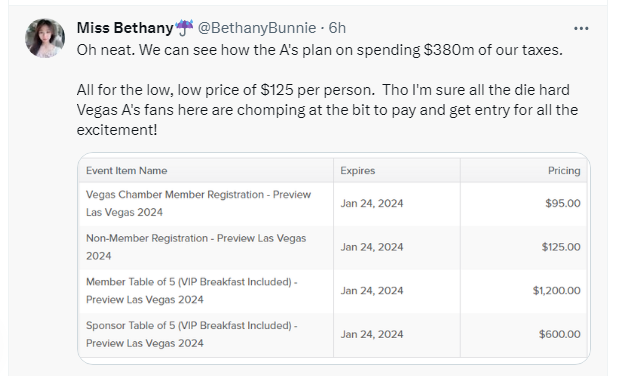
The chamber event’s speaker lineup will include some familiar Athletics stadium subsidy advocates, none other than Las Vegas Convention and Visitors Authority (LVCVA) CEO Steve Hill and his trusty sidekick and A’s consultant/former stadium board consultant/former Raiders executive Jeremy Aguero.
The Hill-Aguero duo teamed up to convince state lawmakers to earmark that $380 million in government assistance to help the A’s build a 33,000-seat, $1.5 billion stadium at the Tropicana hotel site on the Strip. Many thought, at first, that the Athletics’ idea of building an MLB stadium on the Strip was whimsical and well, let’s face it, downright bizarre.
But A’s owner John Fisher claims he has the financial resources to come up with more than a billion dollars to complete the construction funding, though there’s a legion of doubters
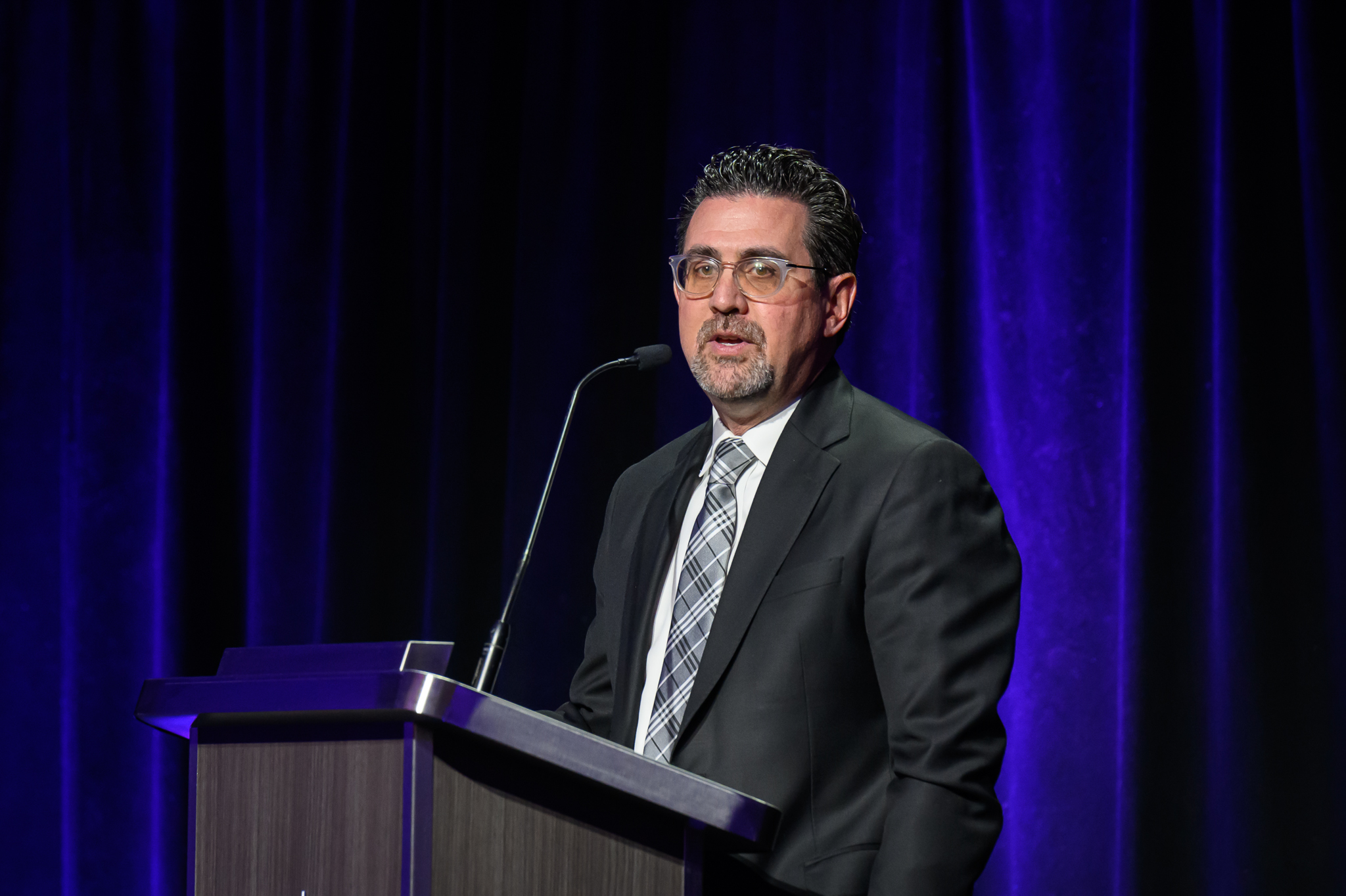
The chamber’s file photo of Aguero shows “Jeremy, The Wonder Years.”
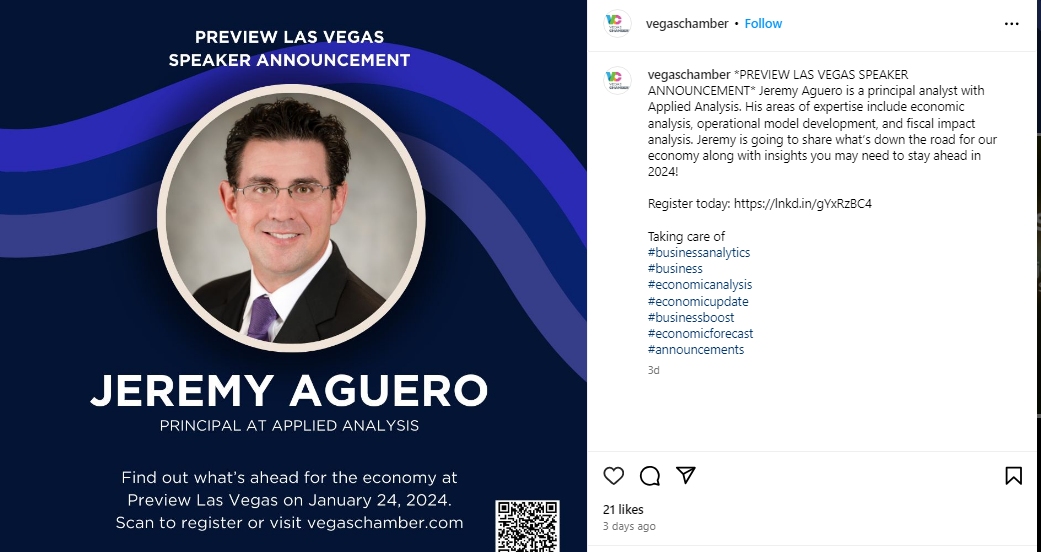
The $380 million stadium subsidy includes $120 in bonds that will be sold by Clark County. The commissioners voted to back the $120 million, including Commissioner Michael Naft who offered his famous words about the A’s request, “They can ask, but it doesn’t mean they’ll get it.” That’s newsworthy because election campaign records show Naft received a $10,000 campaign payment from the A’s a month after SB1 authorized the stadium subsidy.
At the state legislature, some lawmakers who voted for the A’s stadium money were treated to a financial windfall, too, courtesy of more Athletics’ campaign contributions. Below you will see Nevada Assemblyman Richard McArthur received $1,000 for his campaign from the A’s.
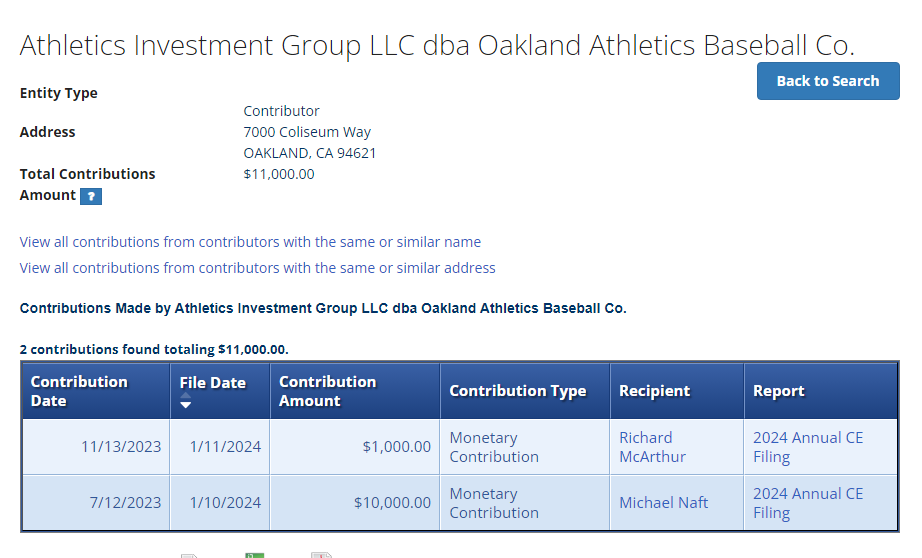
Over in the Nevada Senate, leader Nicole Cannizzaro drew a $10,000 contribution from the Athletics after she voted in favor of the stadium subsidy. So did state lawmaker Richard “Skip” Daly.
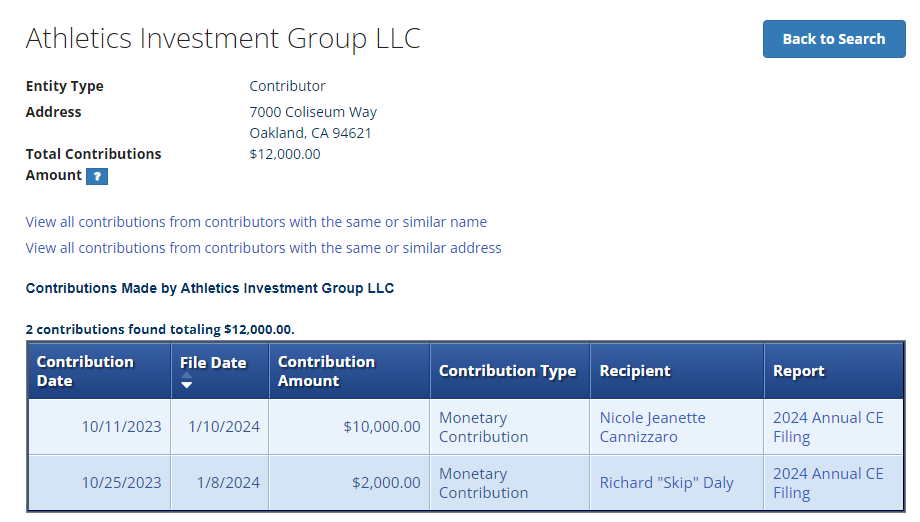
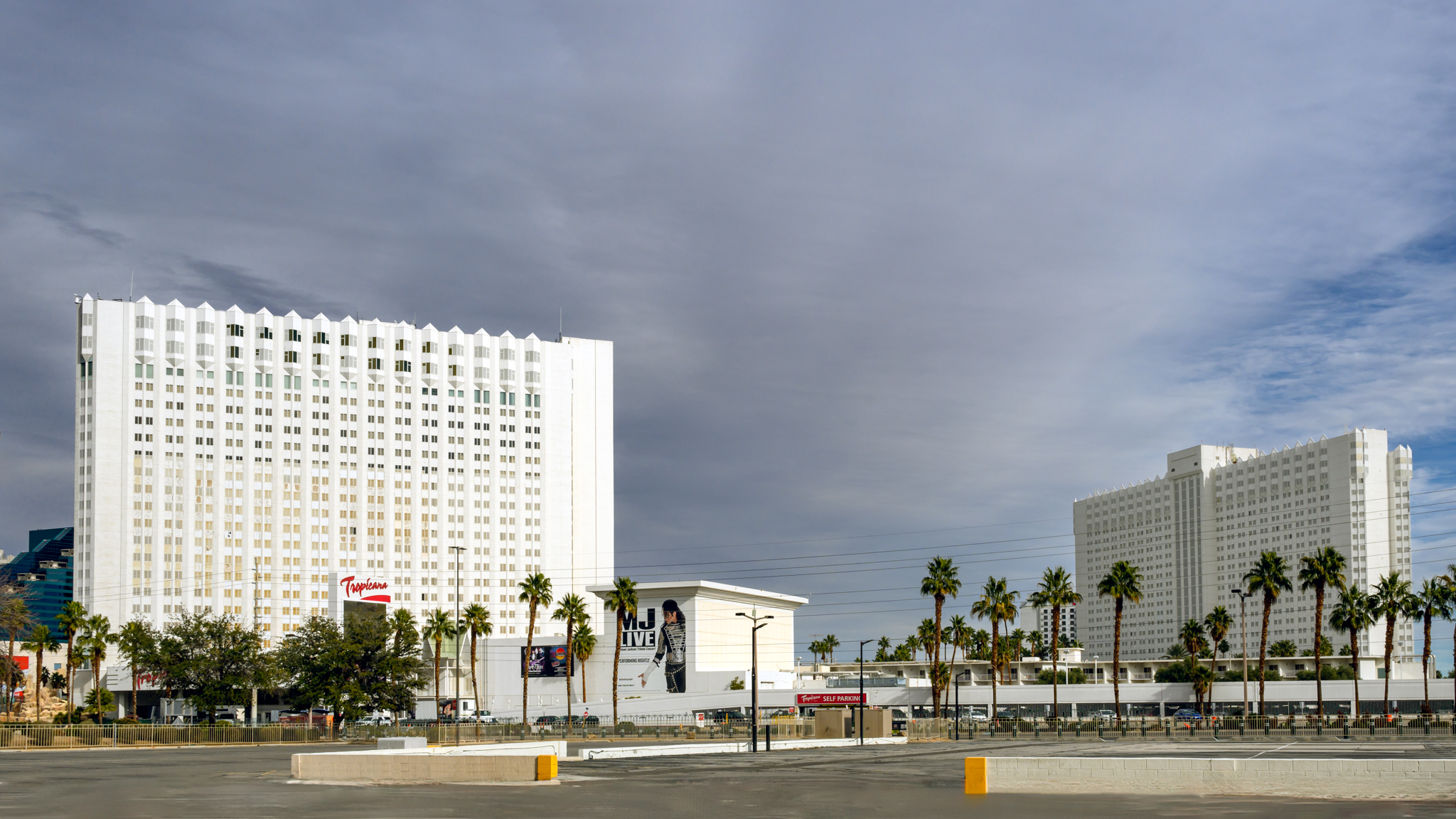
While you will be inundated with Super Bowl hype for the next month, there’s talk — and it’s only at the talking level — that businesses that were financially crushed by the F1 race could receive some compensation under a formula that would still need to be devised.
And the race’s lane closures keep on happening seven weeks after the race:
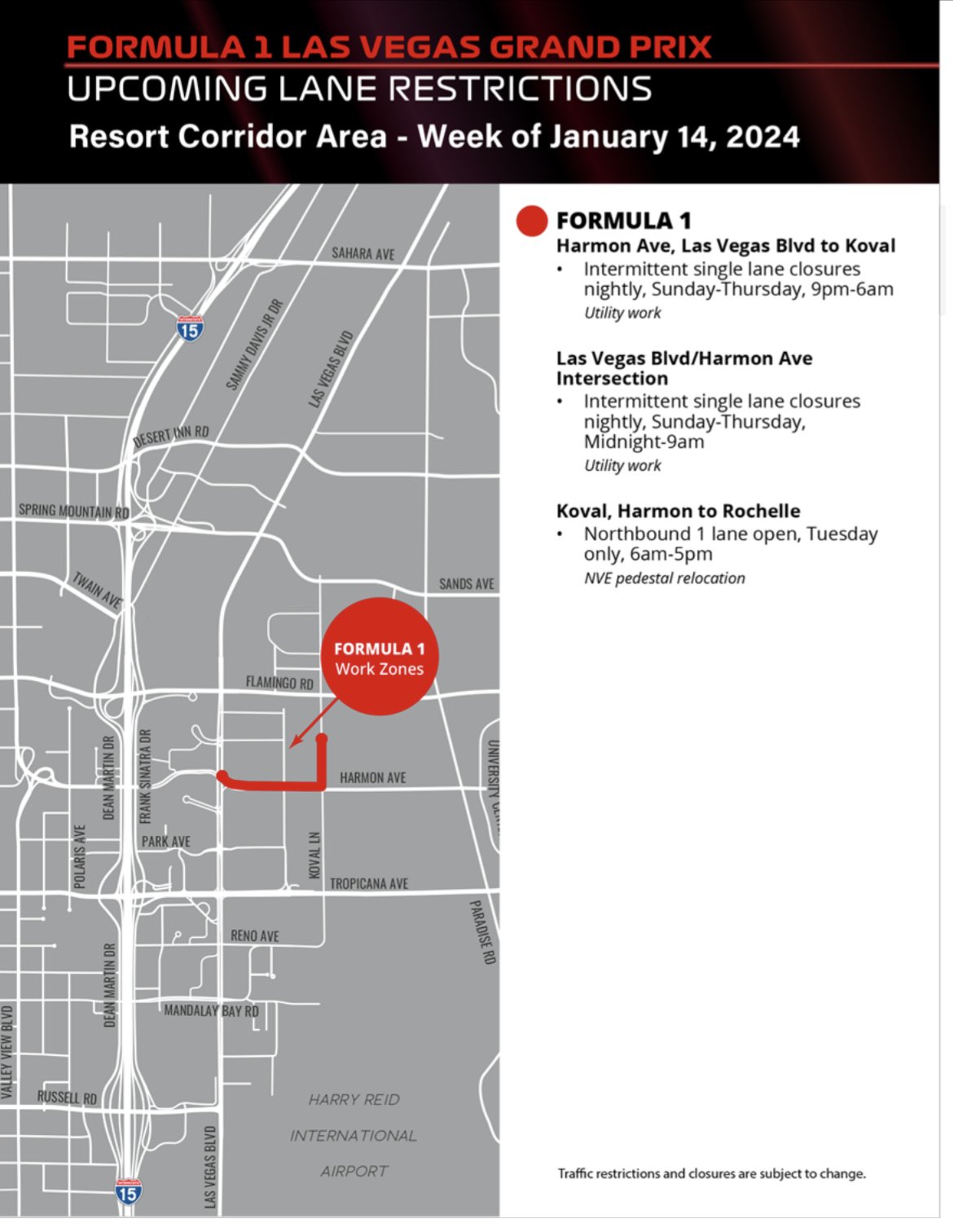
The narrative that Las Vegas gains economically from sports — a line of thinking often criticized by economists across the country.
But one thought still lingers — what if Las Vegas approached schools, mass transit and health care with the same zeal it pumps up big league sports?

